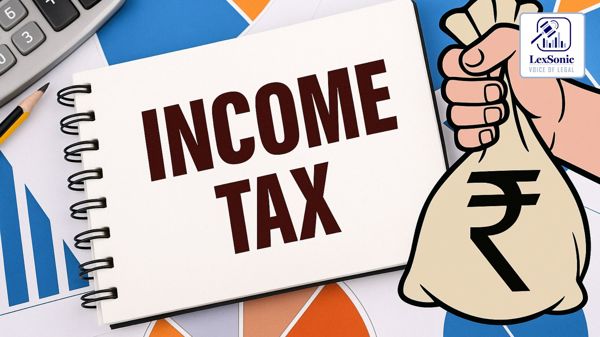Court Orders Refund of Taxes After Incorrect Assessment by Income Tax Authorities.
20 February 2024
Income Tax >> Tax Laws
In a significant ruling of Ayyappa Seva Samgham Bombay, Mumbai v/s Deputy Commissioner of Income Tax, Central Circle-5(1), Mumbai, the court has quashed an impugned order issued by the Assessing Officer (AO) and directed the refund of taxes paid by a charitable organization for the assessment year (AY) 2017-2018. The case highlights the incorrect application of income tax provisions by the tax authorities despite clear directions from the Income Tax Appellate Tribunal (ITAT).
Background:
The petitioner, a charitable trust registered under Section 12A of the Income Tax Act, runs a temple and community hall in Mumbai. The petitioner had filed its income tax return for AY 2017-2018, claiming an exemption under Section 11 of the Act for voluntary contributions received from devotees. The Assessing Officer, during the original assessment, had accepted the petitioner's gross receipts as exempt, but imposed a tax of Rs. 2,88,96,000 under Section 69A for unexplained cash deposits, totaling Rs. 6,21,86,235/- made during demonetization in 2016.

Assessment and Appeals:
The assessment order of 26th December 2019 was later revised by the Commissioner of Income Tax (Exemptions), Mumbai, under Section 263 of the Income Tax Act. The revision suggested a shortfall in the initial assessment and instructed the AO to make a fresh assessment. In the new assessment order dated 23rd February 2022, the AO assessed the petitioner's total income at Rs. 7,75,34,407/- and made additions under Section 69A and Section 115BBE of the Act, treating certain donations as unexplained money.
Aggrieved by this, the petitioner appealed to the Commissioner of Income Tax (Appeals) (CIT(A)), challenging the taxability of the donations under Section 115BBE. The CIT(A) directed the AO to verify the filing of Form 10B and, if valid, allow the exemption under Section 11 of the Act but upheld the assessment of Rs. 3,07,77,671/- as unexplained income.
ITAT's Ruling:
The petitioner then approached the ITAT, which ruled in its favor on 15th May 2023. The ITAT held that the total income for the petitioner should be considered as "Nil" for AY 2017-2018. The Tribunal found that Section 69A and Section 115BBE of the Income Tax Act were not applicable to the petitioner’s case. The donations received by the temple from devotees, as part of their religious offerings, were not considered "unexplained money," and thus no income was chargeable to tax.
Error in Implementation by the AO:
Despite the clear ruling from the ITAT, the AO, in an attempt to give effect to the Tribunal’s order, issued a further order dated 30th November 2023 that inaccurately calculated the taxes and suggested that the petitioner still owed a significant sum. The AO’s order included the same incorrect tax treatment that had been disputed and overturned earlier by the ITAT.
The petitioner filed a petition before the court, seeking the quashing of this erroneous order and the refund of taxes already paid. The court noted that the AO had disregarded the ITAT’s ruling and introduced new controversies, including questions regarding the filing dates of Form 10B and the applicability of Section 44AB of the Income Tax Act—issues that had not even been raised before the ITAT.
Court’s Decision:
The court found the AO's actions to be unjustified, stating that the AO was only required to issue a refund to the petitioner following the ITAT’s decision that no income was taxable. The court emphasized that the AO's continued questioning of the petitioner's entitlement to exemptions under Section 11 was a review of the earlier assessment, which the AO had no authority to conduct. The court also referenced previous rulings that cautioned against unnecessary complications in the assessment process.
In a strong directive, the court ordered the refund of Rs. 40,06,299/- that had been paid by the petitioner, and mandated that a revised order be passed strictly following the ITAT's decision. The Principal Commissioner of Income Tax was instructed to ensure compliance and assign the task to an officer other than the AO responsible for the erroneous order.
Conclusion:
The court’s decision underscores the importance of following judicial rulings and adhering to established tax laws. It serves as a reminder that tax authorities must exercise caution and refrain from re-assessing matters that have already been settled in favor of the taxpayer. The directive to refund taxes and issue a correct order highlights the need for a fair and transparent approach in the implementation of tax assessments.
The case exemplifies the challenges faced by charitable organizations in navigating complex tax laws and the crucial role of appellate bodies in ensuring that due process is followed in the assessment and refund of taxes.
Section 12A, Income Tax Act - 1961
Section 44AB, Income Tax Act - 1961
Section 69A, Income Tax Act - 1961
